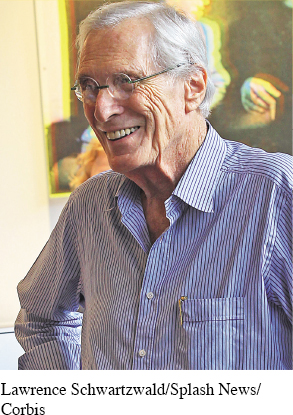1.8 culminating activity
17
Read the following texts that are typical of the kinds of pieces you encounter in an English class, and respond to the questions that guide you through the analysis process. Before each text, you will see that some context has been provided for you, along with a focus for your initial observations.
Eating Poetry
Mark Strand

KEY CONTEXT Mark Strand (1934–
Focus for Your Observation
Think about the somewhat odd behaviors of the speaker (“I”) in the poem.
Ink runs from the corners of my mouth.
There is no happiness like mine.
I have been eating poetry.
The librarian does not believe what she sees.
5 Her eyes are sad
and she walks with her hands in her dress.
The poems are gone.
light is dim.
The dogs are on the basement stairs and coming up.
18
10 Their eyeballs roll,
blond legs burn like brush.
poor librarian begins to stamp her feet and weep.
She does not understand.
When I get on my knees and lick her hand,
15 she screams.
I am a new man.
snarl at her and bark.
I romp with joy in the bookish dark.
Questions for Analysis
Observe: What are the behaviors of the speaker that seem most unusual?
Identify patterns: What commonalities of the speaker’s odd behavior do you notice? What is he behaving like?
Draw conclusions: Why does the poet have the speaker behave like he does? What evidence from the text supports your conclusion? What does this have to do with the title, “Eating Poetry”?